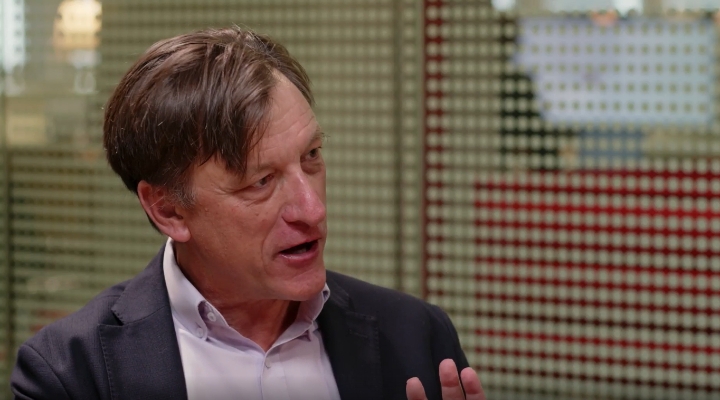
David Bennett and his wife are retired and are looking to make the most of their various investments.
Bennett, who is 70, worked in the construction industry for almost 35 years, but was made redundant 15 years ago, after the company he worked for – McAlpine – was taken over by Carillion.
This has had an effect upon his pension. Bennett explains: “I had a consolidated company pension with some 20 years of contributions, which provides a basic level of income. It had been shifted once, during a previous company takeover, and then again when that new employer was taken over by Carillion.
“This pension was crystallised in 2005, when I left my position. Subsequently Carillion has gone bust and the pension I had with them is now undergoing the PPF (Pension Protection Fund) assessment period. I know I will lose out considerable on inflation benefits in due course.”
However, this isn’t Bennett’s only source of income. He has several smaller pensions, one funded from the lump sum payment McAlpine made when they switched from a final salary to a defined contribution scheme.
He also has a frozen additional voluntary contribution scheme (AVC) scheme which is invested with Standard Life. This is an older-style pension plan but offers a valuable “guaranteed growth rate”, which means it increases at a fixed amount, over a set number of years.
His wife also has a pension from her work with the NHS.
Investment Trust Choices
Elsewhere, Bennett has a portfolio of around 20 investment trusts, which are managed through an ISA.
He says: “At the moment I am not taking any income from these investments.” Bennett says he also has some direct shareholdings.
Bennett has been an investor for at least 20 years. “The most successful period was in the mid-90s, when I invested in a range of funds through PEPs [Personal Equity Plans].”
During the early 2000s he moved his money to Fidelity and sought the help of a financial adviser. However, since 2008 he has made his own investment decisions, and has moved his investments from Fidelity to the Motley Fool platform, and then to AJ Bell’s YouInvest.
Bennett says: “In this recent period the best ISA investments I’ve had are Unilever (ULVR), Scottish Mortgage (SMT), Finsbury Growth & Income (FGT) and Edinburgh Worldwide (EWI).”
Scottish Mortgage has a coveted Gold Rating from Morningstar, as well as a five-star rating. This reflects both its strong performance in recent years and analyst expectations that it will continue to deliver for investors.
Morningstar points out that this trust focuses on high growth companies and tends to hold them for the long term to gain the benefit of compounded growth.
These companies will often have been new entrants or disruptors into a region or industry. This means there can be a bias towards information technology, healthcare and consumer cyclical stocks.
Morningstar analyst David Holder says: “This isn’t a fund for the risk-averse but does have considerable merit for long-term investors seeking exposure to the potential winners of tomorrow within a broadly spread portfolio.”
Finsbury Growth & Income is another outstanding performer, again earning both a Morningstar Analyst Rating of Gold and a five-star rating.
Finsbury Offers Disciplined Approach
Morningstar analyst Peter Brunt says: “[This] is a standout choice for investors comfortable with a highly concentrated portfolio that can look markedly different from the FTSE All Share Index.”
The trust is run by experienced manager Nick Train. Brunt says the managers have shown “a disciplined adherence to a well-structured approach since launch.”
Over the past 10 years this trust has delivered annualised returns to shareholders of 18.31%.
Edinburgh Worldwide has a Bronze Rating. Holder describes this global trust as being “unsuitable for widows and orphans” due to the higher-risk nature of some of its holdings.
This global trust aims to invest in “immature” companies with the ambition to scale up their operation on a global level. This will include a number of disruptors.
Given where they are in their development around a third of the companies in the portfolio have yet to make a profit. But clearly the managers hope that those that do make it big will deliver substantial returns.
Holder says: “In our view this strategy offers investors an interesting option for long-term capital growth. Managers Baillie Gifford is an ideal house to pursue this type of investment given its benchmark-agnostic, bottom-up focus, and patient approach to investment.”
He adds that given the focus on nascent companies in volatile sectors, it is likely to give investors a rough ride from time to time.
Bennett points out that not all of his investments have been as successful, and he has had a couple of small overseas investments that have gone sour. He says: “I was persuaded to invest in them by slick sales people, and as a result lost about 5% of my active portfolio. I soon learned not to trust cold-callers or sales people as a result.”
Bennett is not anticipating adding more to these investments, as he now only has his pension income. However, he adds: “I will probably invest my Standard Life Personal Pension in a drawdown SIPP when the current period of fixed returns end in five years, or when the stock markets look like recovering. At this point I am likely to start to take an income from these investments.”
Bennett says his main investment objectives are to make the most of these existing investments and to maintain a reasonable lifestyle.
But he also wants to provide additional support for his family. He has two grown-up children and, so far, one grandchild, and part of this financial plan will be to leave some inheritance for them.






























